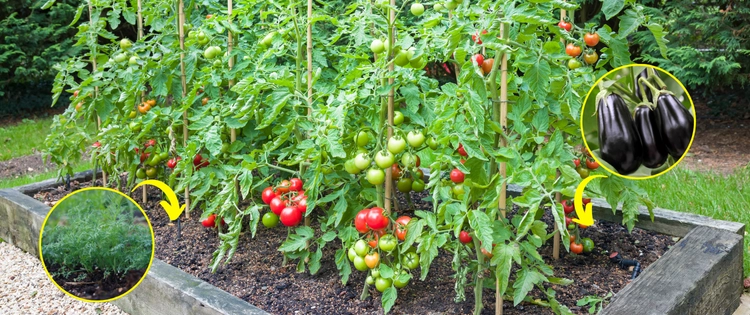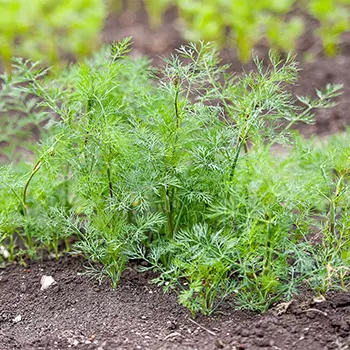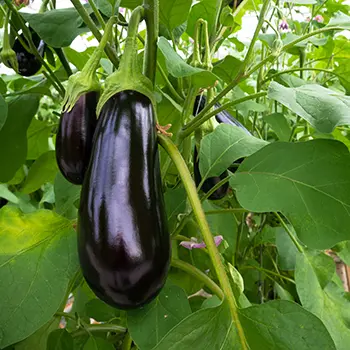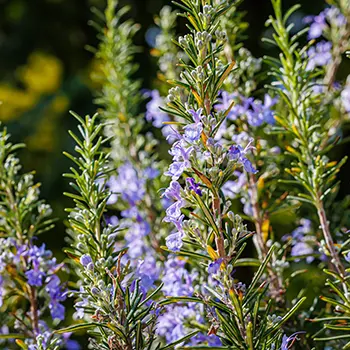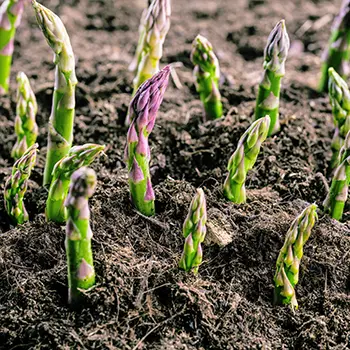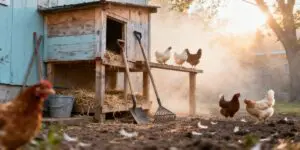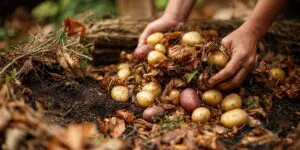Growing tomatoes on your homestead can be super cool! However, these berries are very picky about where they live. Some of the plants nearby can be a bit greedy, sucking up all the good stuff that the tomatoes need to grow big and strong. This can seriously affect both the quality and yield of your tomatoes.
Let’s uncover these sneaky plants that hinder your tomatoes’ growth so you can banish them from your ground. Stick around till the end because you might be surprised to find some of these troublemakers hiding nearby!
Corn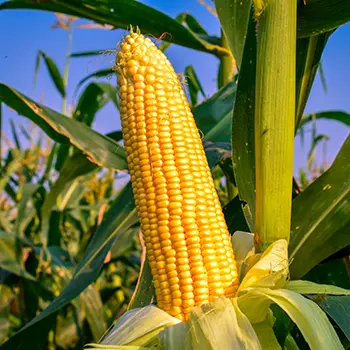
While sautéed corn and tomatoes might make a unique snack, planting them together is a big no-no. Tomatoes and corn attract the same pesky pest known as the Heliothus zea, or more commonly, the Tomato Fruitworm. This pest specifically targets the plant’s fruit, making every fruit they touch inedible.
Brassicas
Brassicas, including cabbage, kale, Brussels sprouts, broccoli, and cauliflower, are all unfit to grow alongside tomatoes. Since these vegetables compete for the same nutrients in the soil, planting them together can deprive tomatoes of essential nourishment.
In addition to nutritional competition, tomatoes and vegetables from the Brassicas family are susceptible to the same fungal diseases. That’s why concentrating them together in one place may lead to a wasted harvest.
Dill
Dill is somewhat of a double-edged sword for tomatoes. It starts as a helpful companion, providing benefits to the vegetable in its early stages of growth. However, as the tomato plant matures, the relationship with dill changes and no longer stays beneficial.
For instance, dill acts as a natural repellent to aphids, helping to protect tomatoes from infestation when planted together. On the other hand, once dill begins to bloom, it competes with tomatoes for essential nutrients, potentially declining the quality of the fruit.
Related: How To Grow Tomatoes Indoors
Fennel
Fennel is another herb that might not be the best companion for tomatoes on your farmstead. When planted together, fennel could deprive tomatoes of the essential resources they need to thrive. While this liquorice-scented plant is still effective in repelling pests, having them alongside tomatoes is not wise.
Eggplant
Eggplants and tomatoes are both nightshades and may seem like natural companions in the garden, just like dill. However, they have similar needs, which means they will compete for nutrients. It could hinder the growth of both plants, with tomatoes growing taller than eggplants and casting shade that eggplants don’t thrive in.
Another concern is blight, a fungal disease affecting both plants. Planting them together increases the risk of blight spreading between them. To avoid this messy scenario, it’s best to keep them apart in your garden.
Potatoes
Potatoes, like tomatoes, belong to the nightshade family. When planted together, these two crops may compete for essential nutrients, potentially stunting each other’s growth. Another reason to avoid pairing them nearby is the harvesting process for potatoes. Since potatoes are dug up from the soil, this can damage the delicate roots of tomato plants.
Related: If You Grow This In Your Garden, You Will Never Starve
Walnuts
Planting tomatoes near a walnut tree can seriously damage your crop. Walnut trees release juglones, a chemical toxic to many plants, including tomatoes. Exposure to juglones can stunt tomato plant growth, diminish fruit yield, and even lead to wilting and death.
Vining Plants
Vining plants like cucumbers, melons, and squash are notorious for their ability to take over garden space as they grow. While this may initially seem harmless, it can pose a significant risk to nearby tomatoes.
When overshadowed by the sprawling vines of these plants, tomatoes receive reduced sunlight and airflow. Consequently, this makes tomatoes more susceptible to fungal diseases like powdery mildew and blight.
Rosemary
While rosemary is a beloved herb in the kitchen, it might not be the best companion for tomatoes in the garden. Rosemary tends to have allelopathic properties, meaning it releases chemicals that can inhibit the growth of nearby plants.
Related: 8 Household Uses for Rosemary
Hot Peppers
Tomatoes and hot peppers may create a delicious combination in a bowl of salsa, but they aren’t the best companions in garden beds. Both vegetables are highly vulnerable to blight, so having them together isn’t an option.
Additionally, these plants also attract the same garden pest: the tomato hornworm. Consequently, planting them near each other means that both crops will suffer.
What Should Be Planted With Tomatoes?
When planning your tomato garden, it’s essential to select companions that provide benefits without creating competition for resources or attracting pests. Here are some excellent options to complement your tomato plants:
Chives
To keep pests like aphids, mites, nematodes, and others at bay, consider planting chives alongside your tomatoes. These aromatic herbs not only add flavor to your garden but also act as effective pest repellents.
Additionally, chives are easy to grow and require minimal maintenance. They attract beneficial insects like bees and butterflies, which can help pollinate your tomato plants and improve overall garden biodiversity.
Asparagus
Asparagus and tomatoes are a fantastic combination in the garden. While tomatoes help repel pesky asparagus beetles, asparagus plays a crucial role in fighting nematodes in the soil, which can harm tomatoes. This symbiotic relationship ensures both crops thrive and flourish happily together.
Related: Plant This Vegetable Once and Harvest it For 30+ Years
Marigolds
Marigolds are renowned for their pest-repelling properties, making them an excellent companion for tomatoes. Their strong scent helps deter pests like nematodes, aphids, and whiteflies, which can damage tomato plants. Planting marigolds around your tomato patch not only adds vibrant color to your garden but also contributes to a healthier, productive tomato crop.
Garlic
Garlic is another beneficial companion for tomatoes, known for its natural pest-repelling abilities. Its pungent aroma helps ward off pests like aphids, spider mites, and caterpillars, which can harm tomato plants. Interplanting garlic with tomatoes not only protects them from pests but also enriches the soil with its sulfur compounds, promoting overall plant health.
To sum it up, growing tomatoes can be rewarding; however, it’s essential to be mindful of their neighbors in the garden. Certain plants, like corn, brassicas, and walnuts, can hinder tomato growth due to competition for nutrients or the release of toxic chemicals.
By selecting compatible companions such as chives, asparagus, marigolds, and garlic, you can enhance the productivity of your tomato plants. Choose your tomato garden companions wisely to ensure a bountiful harvest and thriving plants all season long.
The Herbs You Need to Keep Close During Dark Times (Video)
Ingenious Uses For Tomato Leaves You Never Thought Of

